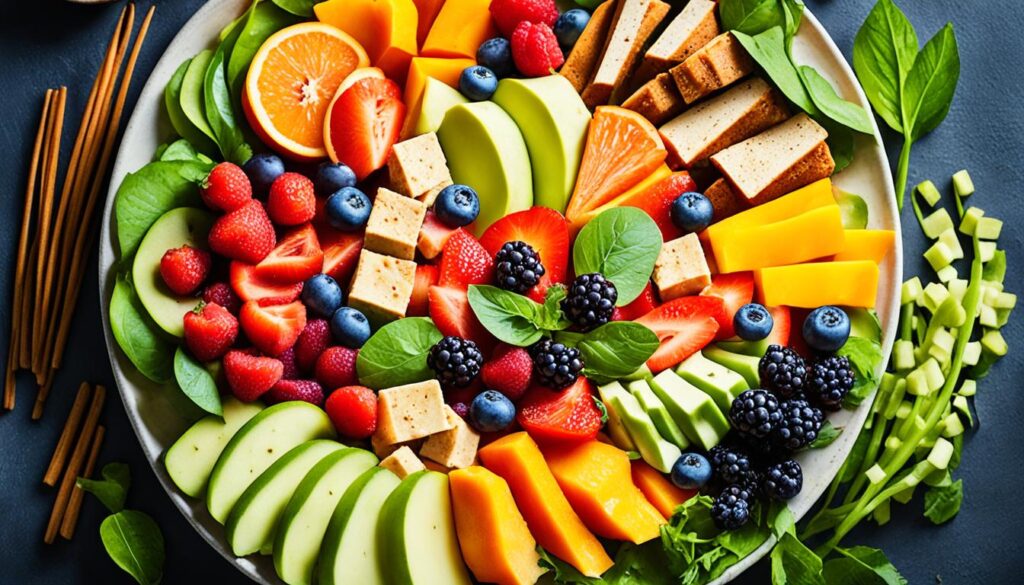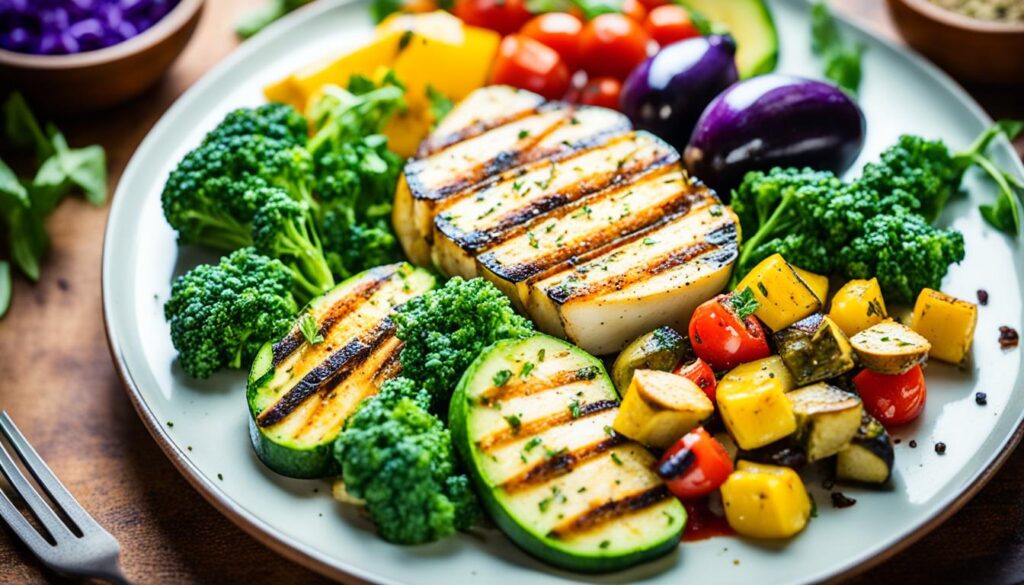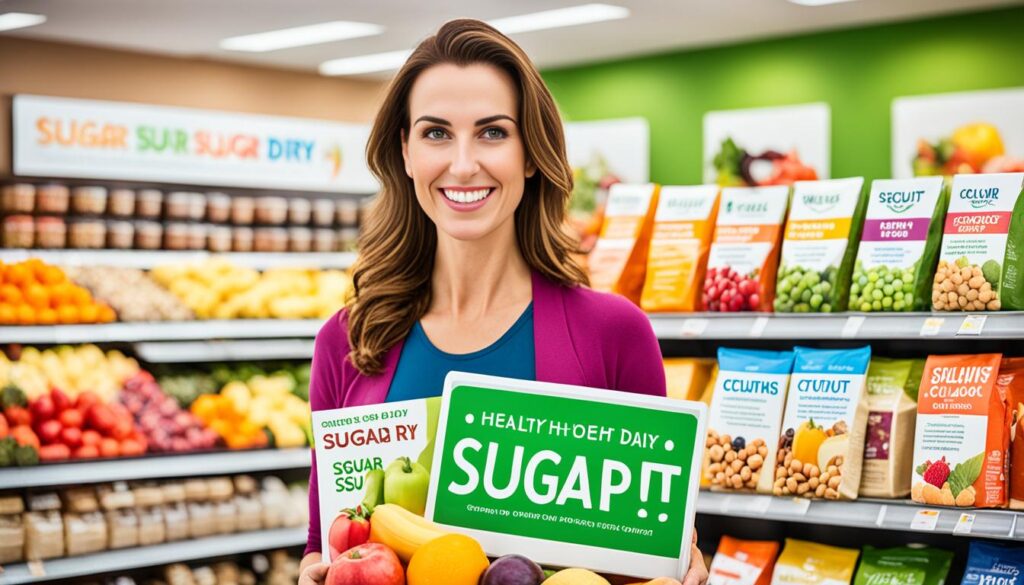Safe Weight Loss Tips For Maintaining Beauty The skin is our biggest organ and plays a big part in how we look and feel. Keeping your skin healthy and glowing is about what you eat and how you live. This guide will help with safe ways to lose weight and make your skin look great. It’s all about loving your body and your skin.
Key Takeaways: Safe Weight Loss Tips For Maintaining Beauty
- Adopting a nutrient-rich diet is essential for maintaining healthy, youthful-looking skin.
- Incorporating regular exercise and staying hydrated can help support skin health and weight management.
- Protecting the skin from harmful UV radiation is crucial to prevent skin cancer and premature aging.
- Incorporating skin-friendly supplements, such as omega-3 fatty acids and antioxidants, can further nourish the skin.
- Maintaining a healthy body weight through safe, sustainable weight loss strategies can boost confidence and skin health.
The Whole30 Diet: Embracing Unprocessed Foods
The Whole30 diet lasts 30 days and you eat only unprocessed, whole foods. This can be good for your skin health. You cut out things that cause skin problems.
Eliminating Processed Foods and Refined Sugar
The first rule is to stop eating processed foods and refined sugar. These foods have a lot of bad stuff like unhealthy fats, additives, and preservatives. This can make your skin look bad, causing acne, inflammation, and aging faster. By not eating these, your skin can stay healthy, glowing, and young.
Avoiding Dairy and Alcohol
On the Whole30 diet, you also don’t eat dairy or drink alcohol. These can make your skin have issues like acne, redness, and irritation. So, by saying no to dairy and alcohol, your skin might look and feel better.
The Whole30 diet is all about eating whole, unprocessed foods. This can really help your skin health. By doing this, you’re cutting out harmful ingredients that could cause skin troubles. So, following this diet can help keep your skin looking healthy and beautiful. It’s also great for your overall health.
The Vegetarian and Vegan Diets: Unlocking Plant-Based Benefits

Vegetarian and vegan diets are becoming more popular for their health perks. They are especially great for your skin. Going plant-based can keep your skin looking fresh and healthy.
Replacing Saturated Fats with Unsaturated Fats
Saturated fats in animal products can harm your skin. They increase inflammation and sometimes cause acne. Yet, unsaturated fats from plants, like olive oil, avocados, and nuts, keep your skin healthy. They even lower the risk of skin cancer.
Eliminating Dairy and Its Impact on Hormones
Vegetarian and vegan diets often don’t include dairy products. This choice is good for your skin. Dairy can mess with your hormones, leading to breakouts. Without dairy, you might notice clearer skin and less redness.
Ensuring Nutrient Intake on a Plant-Based Diet
Eating plants is rich in antioxidants and vitamins that are good for your skin. But, it’s crucial to watch your protein and mineral levels. A balanced plant diet is key for glowing skin and health.
| Nutrient | Vegetarian/Vegan Sources | Benefits for Skin Health |
|---|---|---|
| Vitamin A | Sweet potatoes, carrots, leafy greens | Supports skin cell growth and renewal, helps maintain healthy skin |
| Vitamin C | Citrus fruits, bell peppers, broccoli | Promotes collagen production, protects against sun damage, reduces inflammation |
| Vitamin E | Nuts, seeds, leafy greens | Acts as an antioxidant, helps maintain skin hydration and elasticity |
| Zinc | Beans, lentils, nuts, seeds | Supports skin cell renewal, helps heal wounds, may reduce acne |
| Omega-3s | Walnuts, flaxseeds, chia seeds | Reduce inflammation, maintain skin barrier function, promote skin hydration |
A well-planned vegetarian or vegan diet is the key to great skin. It keeps your skin healthy and lowers the chance of skin cancer. Plus, it helps you get that radiant, youthful look.
The Ketogenic Diet: A Controversial Approach

The ketogenic diet is a diet that’s high in fat and low in carbs. It has gained a lot of popularity lately. Its effects on the skin health are not completely understood yet. Some people say it can make your skin better, but others worry it might have bad effects.
Controlling Calorie Intake and Body Mass Index
This diet is all about eating fewer calories and keeping a healthy weight. It focuses on using fat as your main energy source. This can help you lose weight which is good for your skin. Being overweight or obese can cause skin issues like acne, psoriasis, and even raise your risk of skin cancer.
The Complex Relationship Between Ketosis and Skin Health
The link between the ketogenic diet and skin health is not simple. Some research shows it might help protect cells and lower inflammation. But, there are concerns. The way ketosis works can cause problems, like making your skin too dry or cause breakouts.
Sticking to this diet in the long run and its effects on getting enough nutrients are also important. A well-planned ketogenic diet that’s rich in nutrients might help your skin. But, if you don’t get enough of the right nutrients, it could harm your skin.
Understanding how the ketogenic diet impacts skin health is complicated. It needs more study and consideration. Always talk to a doctor before starting any diet. They can help you figure out if the good points are worth possible risks. Plus, they can make sure the diet fits your needs and goals.
Cutting Out Sugar and Dairy: A Targeted Approach

For better skin, cutting out sugar and dairy helps a lot. Sugar affects insulin, and dairy plays with our hormones, affecting our skin greatly. So, removing these from your diet can lead to healthy, glowing skin.
Sugar’s Influence on Insulin and Oil Production
High sugar intake spikes insulin, boosting oil in our skin. This extra oil blocks our pores, causing acne breakouts. Without sugar, you can control insulin and oil better, keeping your skin clear and balanced.
Dairy’s Impact on Hormones and Acne
Dairy raises hormonal imbalances, worsening skin issues like acne. The hormones in dairy throw off our skin’s balance, causing inflammation and breakouts. Removing dairy can lower the acne risk, leading to a healthier, more even skin.
Choosing a diet low in sugar and dairy can change your skin for the better. This change tackles common issues like acne, inflammation, and an uneven skin tone. It supports a clear, glowing complexion, enhancing your overall well-being and self-assurance.
Also Read: Double Nose Piercing: Elevating Your Style to New Heights in 2023
Skin-Friendly Nutrients: A Holistic Approach
Taking care of your skin means getting the right nutrients. Vitamins like A, antioxidants, and fatty acids are key. Selenium and green tea also work wonders. Together, they keep your skin healthy and glowing.
Vitamin A: Nurturing Skin Cells
Vitamin A is key for skin cell growth and repair. It makes the skin stay healthy by boosting cell turnover. This reduces redness and makes your skin’s barrier stronger. Foods high in vitamin A, like carrots and leafy greens, help renew your skin.
Antioxidants: Protecting Against Free Radical Damage
Antioxidants stop free radicals from damaging your skin. This kind of damage can make you look older or cause wrinkles. Eating fruits and veggies rich in antioxidants, like berries and greens, helps keep your skin healthy.
Essential Fatty Acids: Maintaining Healthy Cell Membranes
Omega-3s and -6s are crucial for skin health. They keep your skin soft and strong. Foods like fish and nuts are full of these beneficial fats.
Selenium: Supporting Skin Cell Health
Selenium is a great mineral for the skin. It fights oxidative stress and keeps your skin’s cells healthy. Foods rich in selenium, like Brazil nuts and tuna, can make your skin look more even and glowing.
Green Tea: A Potent Ally for Skin Protection
Green tea is full of antioxidants that protect the skin. Drinking it can lessen the harm from the sun and make your skin look better. It’s a natural way to shield your skin.
FAQs
Q: How can I maintain healthy skin while trying to lose weight?
A: To maintain healthy skin while losing weight, focus on incorporating foods rich in omega-3 fatty acids like walnuts and fish, such as salmon, into your diet. These foods help protect your skin and keep it hydrated, promoting younger-looking skin.
Q: What role does proper skin care play in safe weight loss?
A: Proper skin care is essential during weight loss to prevent dry skin and maintain the skin’s health. Using moisturizers and sunscreen, and staying hydrated can help prevent skin issues that may arise during the weight loss process.
Q: How does sun exposure affect my skin during weight loss?
A: Sun exposure can increase the risk of skin damage, including sunburn and premature aging. It is crucial to protect your skin from harmful UV rays by using sunscreen and wearing protective clothing, especially during weight loss when the skin may be more sensitive.
Q: Can specific foods help me achieve both weight loss and healthy skin?
A: Yes, including foods rich in antioxidants, such as vegetables, in your diet can help reduce the risk of oxidative damage to the skin. Additionally, foods like salmon, rich in omega-3 fatty acids, can improve skin moisture and overall skin health.
Q: How can maintaining a healthy diet impact the look and feel of my skin?
A: Following a diet rich in nutrients and hydration can help you look and feel your best during weight loss. Nutritious foods and plenty of water can support skin health, prevent dryness, and promote a radiant complexion.
Q: Are fish oil supplements beneficial for both weight loss and skin health?
A: Fish oil supplements, containing omega-3 fatty acids, can be beneficial for weight loss and skin health. Omega-3s help reduce inflammation, protect skin cells, and improve skin moisture, contributing to a healthy and glowing complexion.
Q: What other lifestyle habits can support safe weight loss and healthy skin?
A: In addition to a balanced diet and skincare routine, maintaining good hydration, getting regular exercise to boost blood flow, and practicing sun protection habits are crucial for promoting overall health, weight loss, and skin wellness.
Source Links
- https://www.webmd.com/beauty/features/abcs-of-healthy-skin-diet
- https://www.healthline.com/health/beauty-skin-care/skin-diet
- https://www.mayoclinic.org/healthy-lifestyle/adult-health/in-depth/skin-care/art-20048237




